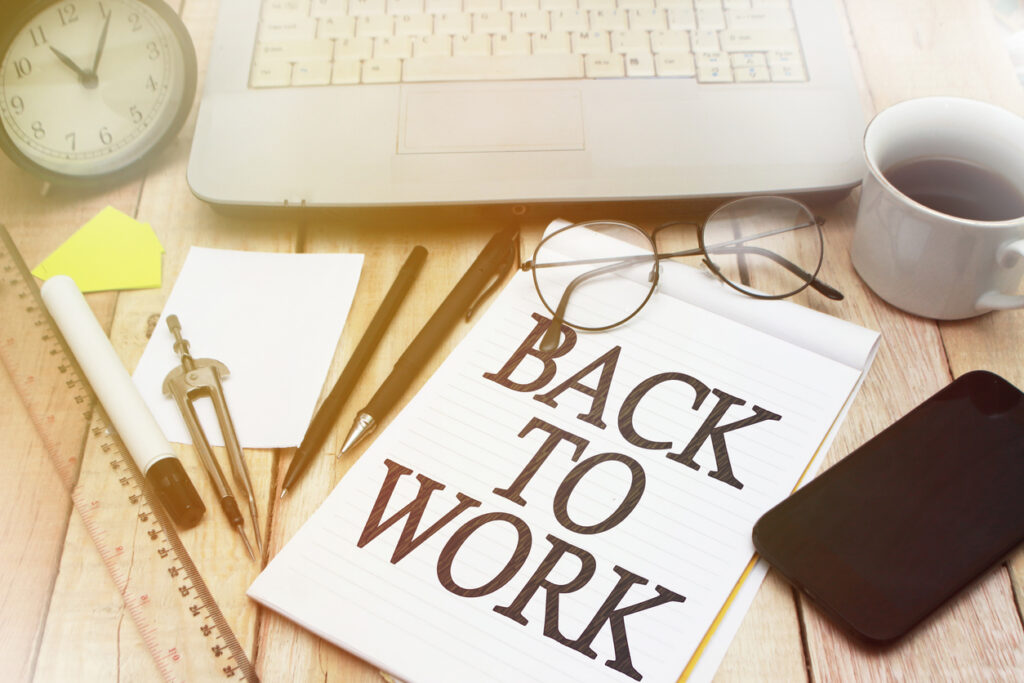The 30th September marks the end of furlough support (the Coronavirus Job Retention Scheme or CJRS) and HR teams are managing the transition. While essential for survival, the experience of furlough was dislocating – and a catalyst for change.
What has been the impact?
At the height of the first lockdown, in May last year, nine million people were furloughed. That’s around one third of those eligible – nearly 30 per cent of the UK’s estimated 32.5million adult working population at the time. Over 60 per cent of jobs furloughed were in the worst affected sectors.
As HR directors navigate organisational, commercial, and legal implications (see the CIPD’s handy: Coronavirus Post-furlough guide) what are the personal impacts for the people affected? I caught up with some of those that I interviewed back in July for HRZone, and some new people, to hear their wide range of experiences. Most were on flexible furlough, working some days through each month. I asked them:
What most affected your sense of belonging or isolation?
Anna, working for a professional body said: “I felt belonging from an amazing team that did all they could to keep jobs and were open about the process. Isolation from not being able to go anywhere or see anyone, and ‘compensating’ feeling guilty that I have children around while working from home, while some others might not.”
Rebecca, working for an arts venue, echoes the importance of close exchange: “Regular check-in points with colleagues, both ‘social’ and ‘professional’ on days back from furlough (during ‘flexible furlough’ times) helped me feel like I still had an ‘active’ line and belonged to the rest of the organisation, even if nothing was about work when I was on furlough (as per the furlough rules!)”
At the end of it I feel drained – most seriously, of confidence. I feel permanently changed in character, like a kind of extreme imposter syndrome, a forever-outsider
Anna’s experience contrasts directly with Rebecca’s: “People being ‘in’ at different times/days, sometimes experiencing FOMO. Some work had to be paused around furlough times – or still done, just later in the day.”
What did you most miss or find hardest about furlough, or what increased disconnection?
For many, purpose came up as a main theme. Rebecca said: “Finding a sense of purpose was hardest – not in ‘filling time’ beyond work (I started running a food bank and coordinating a local Mutual Aid group), but in the uncertainty surrounding furlough (and the future for any arts organisation).”
Loneliness and dislocation was felt particularly hard by Alex, who runs his own company: “Hardest, running my own business and having to furlough myself, is there’s no-one else to get through this with or to support the work.”
“You mustn’t do any work, or anything that could bring future income to the company. Fair and sensible, to avoid abuse. But for a very small business it meant being propped-up yet with a slow death sentence hanging over you.”
Loss of confidence was also a big theme, as in July. Alex felt this acutely: “At the end of it I feel drained – most seriously, of confidence. I feel permanently changed in character, like a kind of extreme imposter syndrome, a forever-outsider.”
What new experiences or aspects of belonging did you gain?
There was a strong theme of togetherness: “It strengthened my perception of belonging – supporting the organisation through a difficult time, we all had to collectively work together.”
Being made redundant during the pandemic – when furlough could have given help – was unfair dismissal in disguise and taught me some valuable life lessons
“There’s something about the feeling that ‘we’re all in this together’. Everyone in the organisation was, at some point, however long, put on furlough – both an equaliser and a reassurance that, just as everyone’s work was valued, so everyone’s openness to furlough was just as valued a contribution.”
And of mastering adaptability: “Maintaining a level of flexibility that I can feel I can now apply to other ways of working. Everyone in my team and in my organisation gained a level of flexibility and autonomy, also reassurance that we’ve adapted well enough and developed strategies that work well for us to replicate or to adapt again – whatever the next challenges will be.”
Reflection on negatives
Asmaa, an experienced charity manager who I spoke with in July, had a harsh experience – yet her reflection is positive: “My experience of being made redundant during the pandemic – when furlough could have given help – was unfair dismissal in disguise and taught me some valuable life lessons. I’m grateful for the blessings that I’ve been given and started a new role that I know will enjoy. I would say: “if one door closes, God opens ten more doors for you.”
I realised in furlough I did not feel I belong, I felt excluded by the team. I took redundancy and now studying again
Experience on re-joining a team
“This is very much work in progress, but overall I feel positive about it.”
“Re-joining meant the entire team had to learn how to adapt, just as we had to learn to adapt to home working, closure, and constantly changing plans…It further helped the sense of togetherness.”
What’s next for you after furlough?
For Anna, it’s a mixed bag: “‘Back to business’, hybrid working and a new, more senior role, in another organisation with equal passion on flexible/hybrid working and supporting staff through his period.”
Kim, who I spoke to in July, was prompted to change: “Although I was unhappy about being furloughed, it gave me valuable time and space to reflect. The upshot is that I’ve decided to take a career break and do voluntary work I wouldn’t have been able to do otherwise.”
Likewise, communications consultant Charlie: “I realised in furlough I did not feel I belong, I felt excluded by the team. I took redundancy and now studying again.”Alex, running his own business, seems most exposed: “I’m not sure what comes next. Fingers crossed for one possible contract. Or maybe training for an HGV licence.”
Observations, or advice to employers, leaders on re-integrating colleagues as furlough ends?
Ongoing connection is vital: “Managers played a significant role in how employees felt about the furlough process – why they were selected, how they were communicated with. It all affected how they felt: Visible? Invisible? Non-important?”
“Make sure you have regular check-in points with your employees, particularly with hybrid models. Enable line managers to find out what their teams need, so they can support with reintegrating, feeling listened to and integral to the company.”
“Remain flexible, open to feedback and accept change as it comes. At the core of it – people will want to embed what lessons they learnt in the last 18 months and refocus on what matters to them.”
And these words of belonging resound throughout the interviews: “Trust your people, communicate openly and create opportunities for connections – meaningful connections.”
All names of interviewees have been changed. Interviews conducted September 2021.











